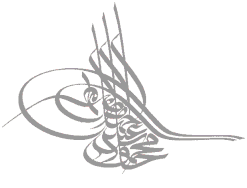Portal:Islam
| Al-Islam Portal | What is Islam? | Indices | Wikiproject | Categories |
Wikipedia portalsIntroduction
Islam (/ˈɪslɑːm/; Arabic: ۘالِإسلَام, al-ʾIslām [ɪsˈlaːm] ( Muslims believe that Islam is the complete and universal version of a primordial faith that was revealed many times through earlier prophets such as Adam (believed to be the first man), Abraham, Moses, and Jesus, among others; these earlier revelations are attributed to Judaism and Christianity, which are regarded in Islam as spiritual predecessor faiths. Muslims consider the Quran to be the verbatim word of God and the unaltered, final revelation. Alongside the Qur'an, Muslims also believe in the previous revelations, such as the Tawrat, the Zabur (Psalms), and the Injeel (Gospel). They also consider Muhammad as the main and final Islamic prophet, through whom the religion was completed. The teachings and normative example of Muhammad, called the sunnah, documented in accounts called the hadith, provide a constitutional model for Muslims. Islam teaches that God (Allah) is one and incomparable. It states that there will be a "Final Judgement" wherein the righteous will be rewarded in paradise (Jannah) and the unrighteous will be punished in hell (Jahannam). The Five Pillars—considered obligatory acts of worship—comprise the Islamic oath and creed (shahada); daily prayers (salah); almsgiving (zakat); fasting (sawm) in the month of Ramadan; and a pilgrimage (Hajj) to Mecca. Islamic law, sharia, touches on virtually every aspect of life, from banking and finance and welfare to men's and women's roles and the environment. Prominent religious festivals include Eid al-Fitr, and Eid al-Adha. The three holiest sites in Islam in descending order are Masjid al-Haram in Mecca, Al-Masjid an-Nabawi in Medina, and Al-Aqsa Mosque in Jerusalem. Islam, in its current and final form, originated in the 7th century in Mecca. Muslim rule expanded outside Arabia under the Rashidun Caliphate and the subsequent Umayyad Caliphate ruled from the Iberian Peninsula to the Indus Valley. In the Islamic Golden Age, mostly during the reign of the Abbasid Caliphate, much of the Muslim world experienced a scientific, economic and cultural flourishing. The expansion of the Muslim world involved various states and caliphates as well as extensive trade and religious conversion as a result of Islamic missionary activities (dawah), and through conquests. (Full article...) Selected articleFeatured pictureIn this month
Islam in the news
Selected biography
Did you know...
WikiProjects
Religion
Islam
Ahmadiyya • Shi'a Islam • Sunni Islam • Hadith • Salaf • Muslim scholars • Islam and Controversy • Muslim history • Mosques • Links Cleanup
Early Muslim military history task force What are WikiProjects? Selected quoteTopicsFeatured content
Featured articles
Featured listsGood articles
Featured pictures
Featured portalsGood topics
Things you can do
Related portalsAssociated WikimediaThe following Wikimedia Foundation sister projects provide more on this subject:
Discover Wikipedia using portals
| ||||||


![Image 1Official portrait, 1956Fakih Usman (Alternatively spelled as Faqih Usman; [faˈkɪh ʊsˈman]; 2 March 1904 – 3 October 1968) was an Indonesian Islamic leader and politician of the Masyumi Party. He twice served as the Minister of Religious Affairs under the cabinets of Abdul Halim and Wilopo from January until September 1950, and again from 1952 until 1953. In his early years, Fakih was criticized by conservative Muslims for his involvement with the modernist Islamic Muhammadiyah organization, though he is remembered fondly by the group. Born to a merchant and his wife in Gresik, Dutch East Indies, Fakih studied with his father and at a series of pesantren (Islamic boarding schools) until the 1920s.In 1925 he became involved with the Muhammadiyah, rising quickly through the leadership until he became the head of the Surabaya branch in 1938. He was also active in local politics, in 1937, he became the treasurer of the Indonesian Islamic Assembly. He continued to be involved in politics and Islamic groups during the Japanese occupation and the ensuing national revolution. Following the end of war, he was appointed Minister of Religious Affairs. As minister, he oversaw educational and institutional reform, growing in prominence within the Muhammadiyah. He also served as deputy chairman of the organization under several different leaders before being chosen as its chairman in late 1968. He died several days later. (Full article...)](../I/Blank.png.webp)

.jpg.webp)

.jpg.webp)






















.jpg.webp)










